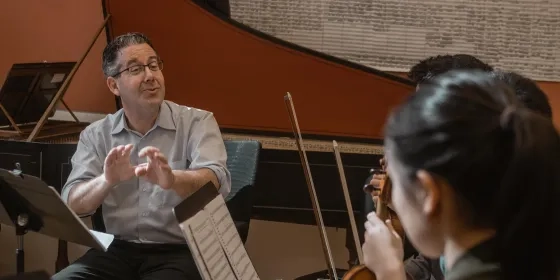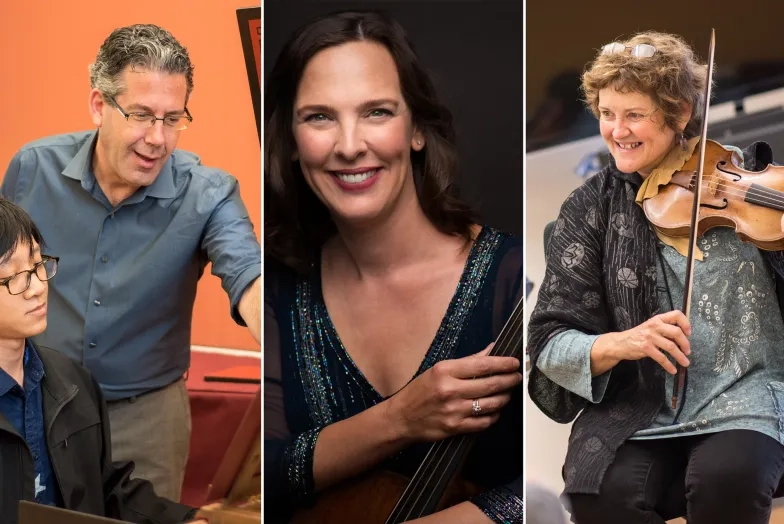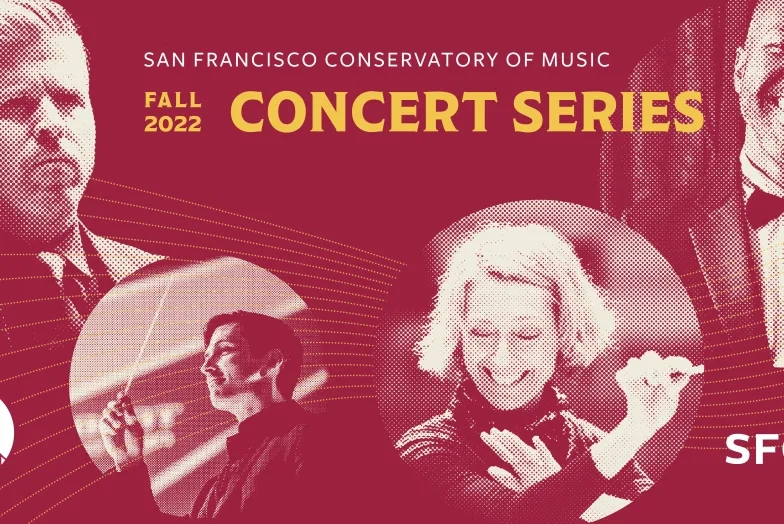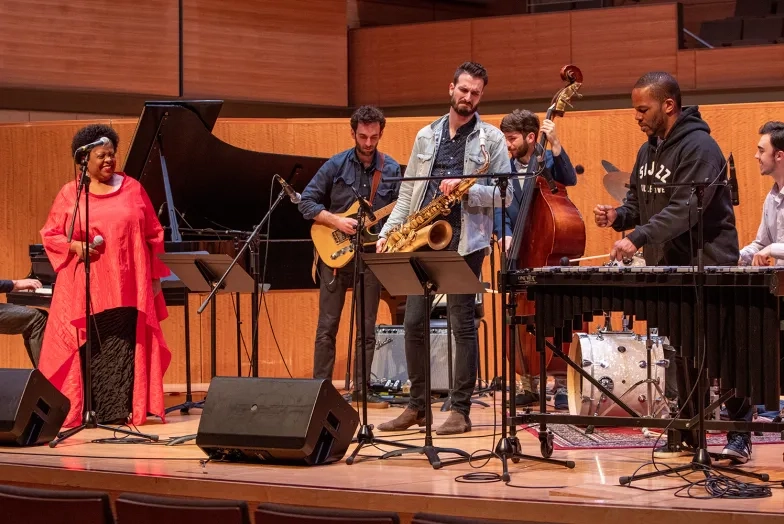In Conversation: Corey Jamason on Pre-College Baroque Ensemble
SFCM’s Pre-College is known across the country as an incubator for the next generation’s greatest artists as they develop into musicians of international renown. Pre-College students at SFCM are often afforded opportunities that are uncommon in similar preparatory programs. Just this year, Historical Performance, an area of study in the collegiate division, expanded into the Pre-College with the creation of a baroque ensemble specifically for Pre-College students. In this Q&A, Historical Performance Department Chair Corey Jamason tells how this ensemble provides a unique learning environment for young musicians.
How was the Pre-College Baroque Ensemble conceived?
For some time, Mike Roest [Associate Dean and Executive Director of SFCM’s Pre-College and Adult Extension Divisions] and I have spoken about the possibility of creating a baroque ensemble for the Pre-College division students. I am delighted we were able to put our dream into action this year. Our idea was to create an ensemble where students could explore baroque orchestral and chamber repertoire, discover this music together as peers and colleagues, and perform in a side-by-side situation with students from our collegiate division.
What have you learned bringing baroque studies to this younger age group?
I have learned that the infectious power and energy and joy of baroque music appeals to musicians of all ages. It is such a privilege to watch the students come into their own in this music, to see them realize that this music belongs to them as much as to anyone else, to feel their growing sense of accomplishment in their energized performances in rehearsal.
What makes the Baroque Ensemble especially attractive (or important) for younger musicians?
I think the incredible power of the music appeals to all musicians. There is something true, real, and natural about this music that is captivating to almost all musicians (and audiences). And most of all, the music is fun! Among other pieces, the students are studying Vivaldi’s Concerto for Strings, an unbelievably exciting, sometimes silly, and always brilliant piece. The Vivaldi contrasts well with the elegance of the movements from a suite of instrumental pieces from Purcell's Fairy Queen that we are also rehearsing.
What are your plans for the future of the Ensemble?
I would like to have as much side-by-side playing with the collegiate students as possible. I believe that students often learn more from peers slightly older than themselves than teachers such as myself—many, many decades older! Baroque 'orchestra' music, in its truest sense, is chamber music. It is about being fully awake, aware, and open to what is happening musically at every moment. My job is to help them as much as possible to understand the style, to offer precise and organized performances that capture the mood and character of the piece and then to get out of the way, so that they may lead themselves on stage among their own peers, empowered and understanding that this music belongs to them and very much is dependent upon them for its future.



